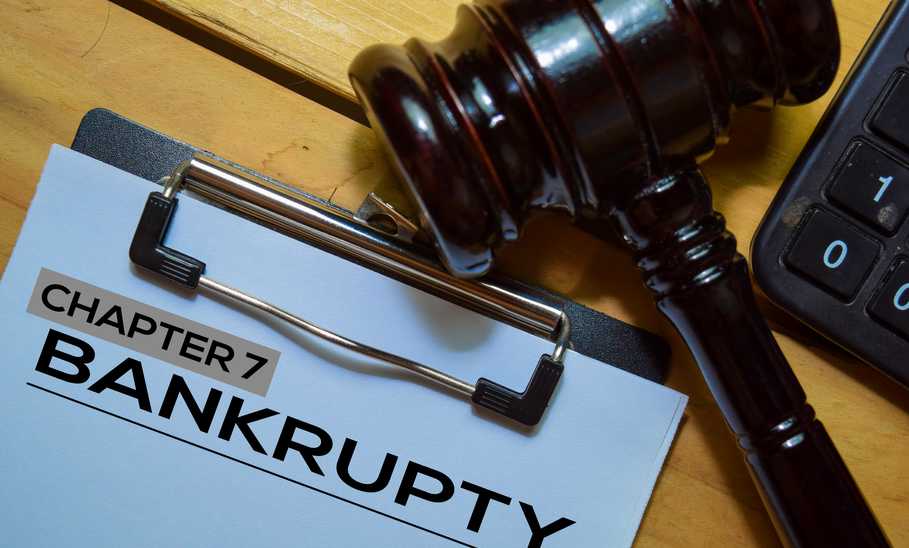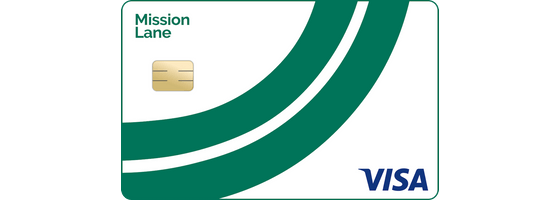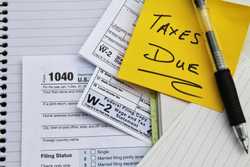Chapter 7 bankruptcy is a powerful process that is available to indebted people who cannot manage their financial obligations. It is often called a “straight bankruptcy,” because it is relatively simple. As long as you qualify, you would be able to walk away from certain debts and start fresh. Here’s what you need to know about Chapter 7 bankruptcy.
Need to start building credit? Get Mission Lane Visa® Credit Card , with no security deposit required.
Mission Lane Visa® Credit Card
Credit score
Fair, Poor, Bad
Welcome offer
bonus_miles_full
How Does Chapter 7 Bankruptcy Work?
As a qualified Chapter 7 filer, you can have such debts as credit card balances, personal loans, collection accounts, and medical bills discharged in bankruptcy court. Secured debt can be discharged, but you may have to forfeit the collateral put up to secure the loan. If you don’t want to lose the collateral, you can choose to agree to pay off the debt in a process called “reaffirming” the debt.The debts you would be stuck with include taxes owed to the Internal Revenue Service (IRS) or the state; most government fines, such as traffic and parking tickets; owed child and spousal support; and most student loans. In the event you own property and have assets, you may have to forfeit them to satisfy your creditors. What you are allowed to keep depends on whether or not the value exceeds federal or state exemption rules.
Assuming you can file and decide to proceed, you will complete the paperwork, pay the filing fee, take the required credit and bankruptcy course, attend the creditors meeting, and go to bankruptcy court. If the judge grants the Chapter 7 bankruptcy protection, the debts you included in the bankruptcy will be discharged.
Chapter 7 bankruptcy: Pros and cons
Pros:
- The process is fast, usually taking only a few months.
- It’s inexpensive: You can do it yourself (though you can also hire an attorney).
- Creditors stop calling.
- You may have funds left over to manage other expenses.
- You have a sense of relief.
- You can start saving money after you are no longer paying creditors.
Cons:
- The bankruptcy stays on your credit report for 10 years.
- Credit products will be hard to get, and terms can be unattractive.
- It doesn’t wipe out all debts.
- It doesn't solve underlying spending issues.
- You have a sense of guilt or embarrassment.
- It can make it hard to rent an apartment.
Who qualifies for Chapter 7 bankruptcy?
To qualify for a Chapter 7 bankruptcy, you have to pass the means test. If your income is at or below the median for your state, you pass and can file. If it's higher, you will have to complete paperwork listing your income, assets, liabilities, and expenses. You won’t be able to use Chapter 7 bankruptcy protection if it shows that you have enough disposable income to manage your debt payments.
When to file Chapter 7 bankruptcy
When you absolutely know that you cannot make the payments to your creditors, not just now but in the future, it's time to explore bankruptcy. This is especially true if you are having a very difficult time meeting your essential expenses, such as food, medical care, housing, and children's needs.
What you must avoid before filing Chapter 7 bankruptcy
Do not start running up the credit cards before you file. Consumer debt that you acquire 70 to 90 days before filing will probably not be dischargeable. The same goes for luxury products and cash advances. Also, avoid using your retirement funds to pay for debt that you plan on discharging, because those funds are usually protected.
Above all, don't try to game the process. Selling or transferring property for less than it's worth sends up a red flag that you are committing fraudulent acts, in which case your bankruptcy can be denied.
What are the steps to filing Chapter 7 bankruptcy?
- Deciding whether you want an attorney. If you do, hire one. If you don’t, get a good guidebook to follow.
- Taking the mandated credit counseling course. According to the Federal Bankruptcy Code, you will have to get U.S. Department of Justice approved credit counseling within a 180-day period before filing.
- Petitioning for bankruptcy and preparing the paperwork. Your attorney will do this for you if you have one. The documents will include an overview of your assets and liabilities, income and expenses, paystubs, a statement of financial affairs, and a schedule of contracts and unexpired leases. You will submit a certificate that shows you participated in the approved credit counseling. You must also pay the fee.
- Appointing a trustee. The court will appoint a trustee, an impartial person who will ensure that all the paperwork is correct and you are aware of the bankruptcy process and consequences.
- Holding a creditors meeting. The trustee will hold a meeting of your creditors between 21 and 40 days after you file the petition. Under oath you will guarantee that everything you have provided and stated is true. If any of the creditors attend, they have the opportunity to ask questions about your financial affairs.
- Taking a debtor education course. The second step of the mandated counseling course is a debtor education course. You have 60 days to take the class and submit the certificate of completion to the court.
- Confirming eligibility. The trustee will review everything you submitted and make the determination about whether or not you can proceed with the Chapter 7 bankruptcy.
- Liquidating nonexempt property. In the event you have assets above the exemption limit, the trustee will take steps to liquidate that property and distribute the value to your creditors.
- Getting a discharge order. A discharge order will generally be issued between 60 and 90 days after the creditors meeting.
Which debts are discharged in Chapter 7 bankruptcy?
There are many types of debts that people can include in a chapter 7 bankruptcy. They cannot be secured by property or assets. Dischargeable debts typically include:
- Credit card balances.
- Personal loans from friends, family members, and employers.
- Accounts in collection agencies.
- Doctor, hospital, and dental bills.
- Past-due rent.
- Past-due utility balances.
- Old tax penalties and unpaid taxes.
- Business debts.
- Most auto accident claims.
- Most attorneys’ fees.
- Most auto accident claims.
What is exempt vs. nonexempt property in Chapter 7?
Exempt property is the group of assets that you get to keep. You will not be forced to give it up to your creditors because it falls under exemption guidelines. Federal and state law dictate what is exempt from liquidation, but it typically includes:
- Your primary residence, depending on the amount of equity or if you can use the homestead exemption that protects a certain amount of equity (this varies by state).
- Your primary car up to a certain value.
- Reasonably necessary clothing, household goods, and furnishings.
- Jewelry, up to a certain value.
- Retirement plans and pensions.
- Tools of your trade or profession, up to a specific value.
- A portion of unpaid but earned wages.
- Public benefits, such as welfare, Social Security, and unemployment compensation that is in your bank account.
- Damages awarded for personal injury.
On the other hand, nonexempt property usually includes:
- Expensive collectibles.
- High priced musical instruments (unless you need them for your profession).
- Family heirlooms.
- Recreational vehicles, such as boats and all-terrain vehicles.
- Cash, stocks, bonds, and other investments.
- Second or more vehicles.
- Any secondary residential property, such as a vacation home.
Chapter 7 vs. Chapter 13 bankruptcy
Chapter 13 is an alternative bankruptcy proceeding that allows you to keep more assets but takes much longer and reorganizes debt, rather than writing it off. There are many differences between a Chapter 7 and a Chapter 13 bankruptcy.
|
It stays on your credit report for 10 years. | |
Discharging debt is the goal. | Reorganizing debt is the goal. |
| |
You must pass a means test. | You must prove your ability to meet the payments. |
It’s finished in a few months. | It’s finished in three or five years. |
An attorney isn’t necessary. | An attorney is usually necessary. |
Chapter 7 vs. Chapter 11 bankruptcy
The differences between a Chapter 7 and a Chapter 11 bankruptcy, a third alternative process, are also striking. Chapter 11 is used by businesses and by individuals whose income is higher than the level that permits people to use Chapter 13. One non-difference: Chapters 7 and 11 both stay on your credit report for 10 years.
|
| |
| |
It’s usually used by individuals. | It’s usually used by businesses. |
It’s a relatively inexpensive process. | It requires attorneys, so is often an expensive process. |
It only takes a few months. | It can take many years to complete the repayment process. |
You must pass a means test. | No means test is required. |
How will Chapter 7 bankruptcy affect your credit?
Chapter 7 bankruptcy can have a severely negative impact on your credit.
- It shows up in the public record section of your credit report for 10 years.
- Anybody who pulls your credit report can see it and judge your creditworthiness.
- The negative impact of a bankruptcy on your credit will be most severe in the first two years after filing, but it will continue to be a factor until it drops off your report.
What to do after Chapter 7 bankruptcy?
After you file for bankruptcy, you can regroup. You may have enough money to meet your necessary expenses, as well as any other debts that you did not discharge. If you fell behind on them, you can get back on track.
You may want to apply for a credit card and start using it responsibly. The best cards will not be within reach soon after you file. However, if you use a card with a low limit in just the right way, you will be adding positive information to your credit report, which will elevate your credit scores. You can keep an eye on your credit scores by going to myFICO.com and ordering them.
Pull your consumer credit reports on a quarterly basis. You can get them for free from AnnualCreditReport.com. Get one each from TransUnion, Experian, and Equifax, so you can monitor your credit history and mitigate problems should they occur.
This is also a great opportunity to start saving money and planning for the future. You will be unable to file for Chapter 7 bankruptcy again for eight years, so if you do acquire debt, you will be stuck with it.
What are the alternatives to Chapter 7 bankruptcy?
Chapter 7 bankruptcy isn't for everyone. For example, you may have assets you want to keep that you would have to forfeit. Whatever the case, always review your options before filing for chapter 7 bankruptcy. These can include:
- Debt management plans arranged by credit counseling agencies.
- Liquidating assets on your own and applying the proceeds to your debt.
- Negotiating lower payments with your creditors.
- Exploring debt settlement offers.
- Not paying debts that no longer appear on your credit report because they are past the statute of limitations for collections.
- Requesting financial help from friends and family members.
- Raising money on crowdfunding platforms.
- Working a second job.
- Radically decreasing expenses.
- Filing Chapter 13 or Chapter 11 bankruptcy.
TIME Stamp: Chapter 7 bankruptcy can bring welcome relief from debt, but it has serious consequences
Chapter 7 bankruptcy has the power to give people who are overwhelmed with large amounts of consumer debt an enormous sense of relief. If you are able to file and it seems right for your situation, it is worth considering. However, there are serious repercussions that last for many years.
Frequently asked questions (FAQs)
How much does it cost for Chapter 7 bankruptcy?
Petitioning for a Chapter 7 bankruptcy currently costs $338 in filing fees. If you hire an attorney, expect to pay considerably more.
Which chapter should I choose?
If you do not have the means to repay your debts with any other remedies, a Chapter 7 bankruptcy may be right, especially if you do not have any property to lose. If you can repay your debt by reorganizing it so that the monthly payments are lower, a Chapter 13 may be your better bet, particularly when you have property you want to keep.
Is there an income limit for Chapter 7 bankruptcy?
Yes. You will have to pass a means test that gauges how much income you have. If it is at or under the median income for your area, you can file. If it is above that, you will have to document your financial reasons for filing.






